With digital interactions dominating both business and personal spheres, the importance of robust identity verification (IDV) solutions cannot be overstated. Organizations across various sectors are grappling with increasing regulatory pressures and sophisticated fraud attempts, so the choice of IDV vendor becomes a critical decision with far-reaching implications.
Following up on part 1 and part 2 of this blog series, this post explores how highly certified IDV solutions can significantly impact return on investment (ROI) across three different sectors—financial services, iGaming, and government—while highlighting the potential pitfalls of opting for lesser-certified alternatives.
Financial services: Navigating AML compliance
The financial services industry operates under intense scrutiny, with anti-money laundering (AML) regulations at the forefront of compliance requirements. A well certified IDV solution can be a game-changer in this context, offering multiple benefits:
- Enhanced accuracy: Advanced IDV systems provide precise verification of customer identities, so that KYC means exactly that: Knowing Your Customer.
- Operational efficiency: By reducing manual review time and minimizing false positives, these solutions, particularly those that are automated, streamline the onboarding process and ongoing monitoring (for example, during reauthentication).
- Improved customer experience: Faster, more accurate verifications lead to smoother customer interactions and increased satisfaction. Effective compliance with regulation does not need to mean poor UX.
The impact on ROI is clear: improved compliance, reduced operational costs, and enhanced customer retention all contribute to a healthier bottom line.
The stakes are high, however, when it comes to choosing an IDV vendor. Opting for a lesser-certified solution can expose financial institutions to significant risks. Inadequate due diligence or missed red flags can result in hefty regulatory fines for AML violations. For instance, $1.1billion for Standard Chartered in 2019, $920 million for JP Morgan Chase in 2020, and $2.2 billion for Danske Bank in 2023—in short, AML regulators remain active and vigilant.
Beyond immediate financial penalties, the reputational damage and potential loss of banking licenses can have long-lasting negative impacts on an institution’s profitability and market position.
iGaming: Balancing growth & responsible gambling
The online gambling industry faces unique challenges in identity verification, with age verification and responsible gambling measures at the forefront. A state-of-the-art IDV solution in this sector can deliver significant benefits:
- Real-time age verification: Accurately verifying player ages helps prevent underage gambling and ensures regulatory compliance. An added tool of returning only a check or cross mark to validate if the player is of the correct age is even better, with compliance and privacy neatly working together.
- Integration with responsible gambling databases: This feature prevents self-excluded individuals from accessing the platform, promoting safer gambling practices.
- Enhanced brand reputation: Demonstrating a commitment to player protection can lead to improved brand perception and customer trust.
The ROI implications are substantial: improved regulatory compliance, reduced risk of penalties, and a positive brand image that supports sustained growth.
Conversely, relying on a less reliable IDV solution in the iGaming sector can lead to severe consequences. Failure to effectively prevent underage gambling or allowing self-excluded players to circumvent restrictions can result in massive fines. In 2020, Betway was hit with an £11.6 million penalty for failing to protect vulnerable customers and prevent money laundering—plus the combined fines of $7.45 million in 2024 for MGM Grand and the nearby Cosmopolitan in Las Vegas show that the regulators are not scared to show their hand.
Furthermore, the risk of license suspensions or revocations poses an existential threat to online gambling operators, potentially leading to significant revenue losses and long-term brand damage.

Public sector: Ensuring efficient & accurate benefits distribution
In the public sector, particularly in social benefits distribution, the implementation of highly-certified IDV solutions can yield substantial improvements:
- Accurate eligibility verification: By matching applicant information against authoritative databases, these systems ensure benefits reach the intended recipients.
- Fraud detection: Advanced IDV solutions can identify potential fraud attempts, reducing instances of improper payments.
- Streamlined processes: Efficient identity verification leads to faster application processing and benefits distribution.
The ROI for government agencies is evident in reduced fraudulent claims, improved operational efficiency, and enhanced public trust in the benefits system.
The consequences of using a subpar IDV solution in this context can be severe. The UK Department for Work and Pensions reported £8.6 billion in benefits overpayments due to fraud and error in the 2021-2022 fiscal year. Well-publicized numbers in the hundreds of millions of dollars and pounds over Covid-19 show that even though the flashpoint of the pandemic has passed, the government social services bucket is very leaky.
A less sophisticated IDV system could exacerbate such issues, leading to significant financial losses for the government and potential public backlash. Additionally, inefficient verification processes could result in delays in benefits distribution, causing hardship for genuine claimants and increasing administrative costs.
Invest only in the most certified solutions
Across financial services, iGaming, and the public sector, the impact of highly certified IDV solutions on ROI is clear. These advanced systems offer enhanced accuracy, improved operational efficiency, and better compliance with regulatory requirements. The benefits extend beyond immediate cost savings to include long-term advantages such as improved customer trust, brand reputation, and sustained growth.
Conversely, the risks associated with lesser-certified IDV vendors are substantial. From massive regulatory fines to reputational damage and operational disruptions, the potential costs far outweigh any initial savings from choosing a less robust solution.
In the modern digital-first environment, where identity verification forms the cornerstone of trust in online interactions, organizations must view their choice of IDV vendor as a strategic investment rather than a mere operational expense. Businesses and government agencies should ask: For long-term success in an increasingly complex digital ecosystem, what value do I place on an IDV solution that places its highest value in accountability to a foundation of international standards?
About the post:
Images and videos are generative AI-created. Prompt: A scruffy youthful backpacker walking confidently through a vibrant foreign street market, wearing worn hiking boots and carrying a large weathered backpack, surrounded by colorful stalls and exotic signage, golden hour lighting, candid street photography style, wide-angle lens perspective. Tools: Midjourney, Luma.
About the author:
Terry Brenner is the Head of Legal, Risk, and Compliance for IDVerse Americas. He oversees the company’s foray into this market, heeding to the sensitivities around data protection, inclusivity, biometrics, and privacy. With over two decades of legal experience, Brenner has served in a variety of roles across a diverse range of sectors.


